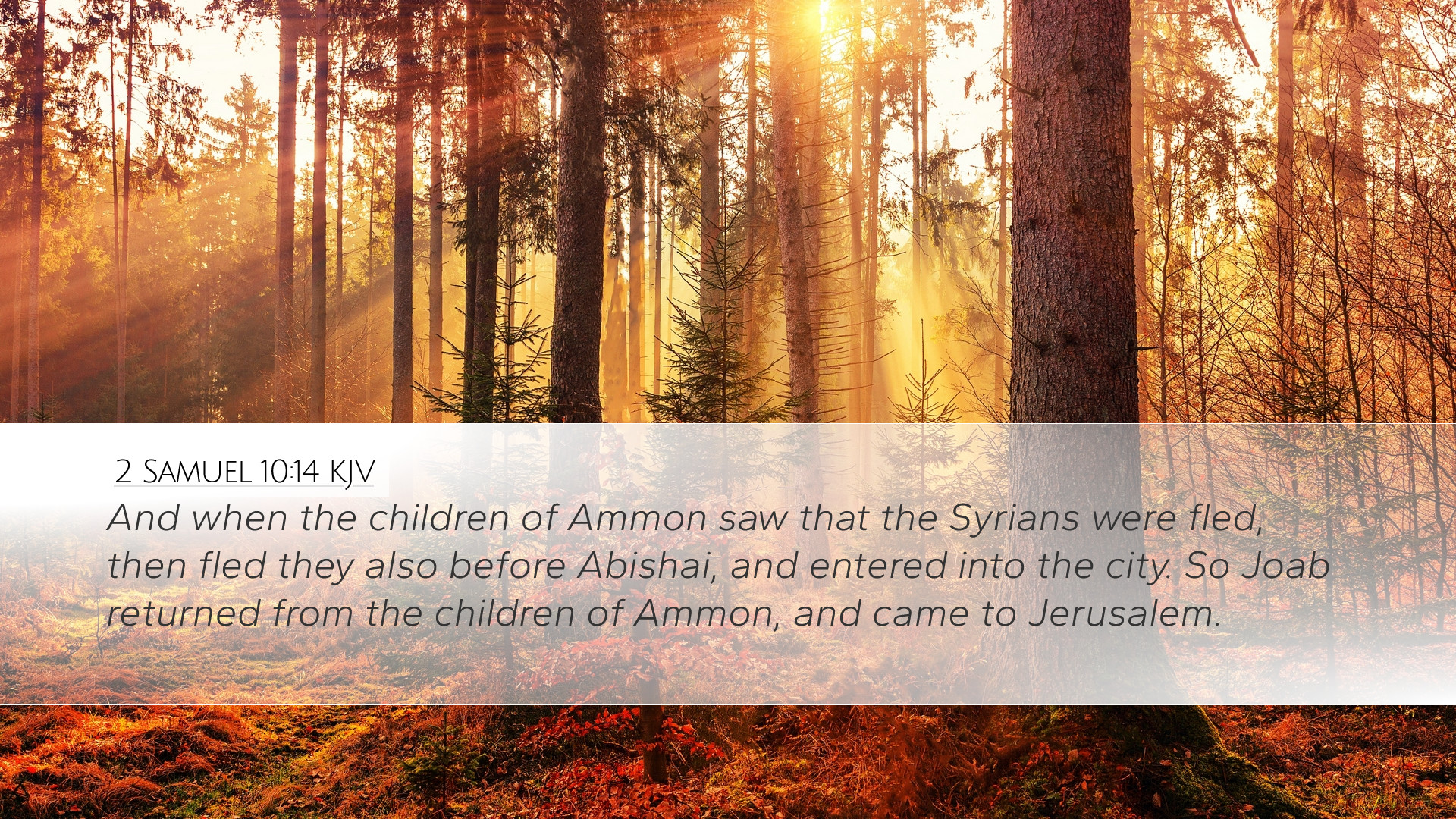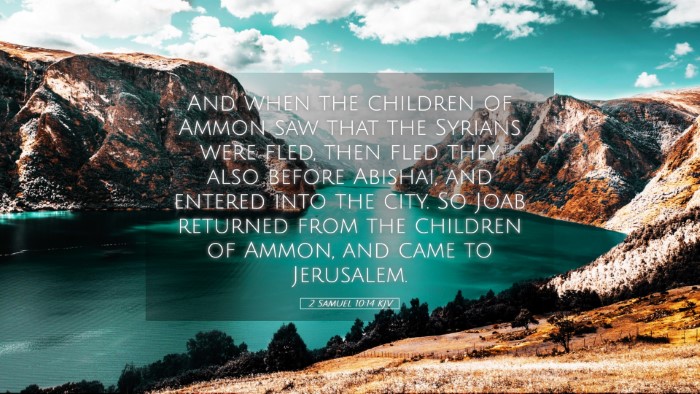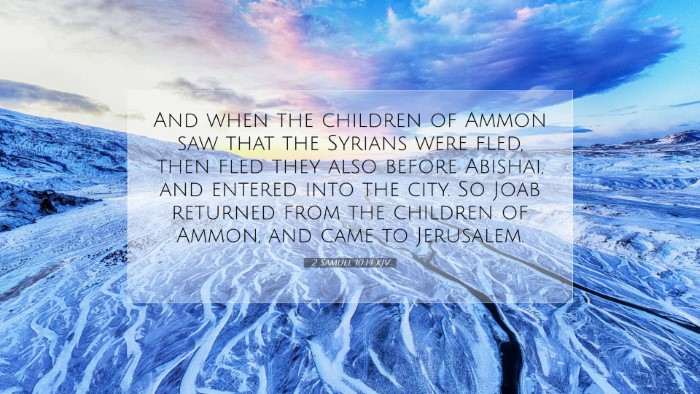Old Testament
Genesis Exodus Leviticus Numbers Deuteronomy Joshua Judges Ruth 1 Samuel 2 Samuel 1 Kings 2 Kings 1 Chronicles 2 Chronicles Ezra Nehemiah Esther Job Psalms Proverbs Ecclesiastes Song of Solomon Isaiah Jeremiah Lamentations Ezekiel Daniel Hosea Joel Amos Obadiah Jonah Micah Nahum Habakkuk Zephaniah Haggai Zechariah Malachi2 Samuel 10:14
2 Samuel 10:14 KJV
And when the children of Ammon saw that the Syrians were fled, then fled they also before Abishai, and entered into the city. So Joab returned from the children of Ammon, and came to Jerusalem.
2 Samuel 10:14 Bible Commentary
Commentary on 2 Samuel 10:14
Verse Context: 2 Samuel 10:14 reads: “When the children of Ammon saw that the Syrians were fled, they likewise fled before Abishai, and entered into the city. So Joab returned from the children of Ammon and came to Jerusalem.” This verse is situated within a larger narrative that highlights the conflict between Israel and the Ammonites, revealing themes of warfare, betrayal, and divine providence.
General Overview
This verse encapsulates a significant moment in the military campaigns of David, particularly against the Ammonites, who had hired the Syrians to assist them. The defeat of the Syrians underlines the sovereignty of God working through Israel's leadership, even in times of apparent disarray.
Theological Implications
-
God’s Sovereignty:
The fleeing of the Syrians signifies not just a military loss but also the fulfillment of God's purpose for Israel. As Matthew Henry eloquently states, "The Lord has the hearts of kings in His hand;" this indicative of divine control over the destinies of nations and their leaders.
-
Courage and Strategy:
Joab's return signifies the strategic retreat led by Abishai. According to Albert Barnes, Joab, as a commander, shows prudence by not pressing the attack toward a fortified city, demonstrating a keen understanding of warfare and military prudence.
-
Military Unity:
The retreat of the Ammonites upon witnessing the Syrians’ defeat emphasizes the interconnectedness of fear and courage in battles. Adam Clarke notes that the mutual responses in battle highlight the psychological dynamics at play and the influence of visible strength on adversaries.
Commentary Insights
Matthew Henry
Henry emphasizes the moral and spiritual lessons drawn from military engagements in the biblical context. He underscores that the victory should be attributed to divine favor more than military prowess alone, suggesting that the true strength of Israel came from their covenant with God and their adherence to His commands, which continued to provide them the upper hand in conflicts.
Albert Barnes
Barnes draws attention to the strategic decision-making by Joab and Abishai. He comments on how military leaders should be guided by both experience and divine wisdom in their commands. The act of retreat by the Ammonites, influenced heavily by the visible defeat of their allies, serves as an important reminder of how fear can quickly shift the balance of power in battles.
Adam Clarke
Clarke delves into the psychological aspects of warfare illustrated in this passage. He suggests that the flight of the Ammonites, after witnessing the Syrian defeat, reflects a deeper understanding of the significance of alliances in war. Clarke notes, “When the allies fail, the principal enemy is often left vulnerable," a poignant reminder of the fragility of human schemes against divine providence.
Application for Leaders and Scholars
This passage offers valuable insights into the nature of leadership in both ecclesiastical and secular contexts. It addresses the importance of a solid support base, the necessity of strategic planning, and the recognition of divine sovereignty in all undertakings.
-
For Pastors:
Leaders must cultivate an environment of faith, understanding that true strength and victory come from their relationship with God rather than their own strategies or numbers.
-
For Theologians and Students:
This verse encourages a contextual understanding of biblical warfare, prompting deeper studies into the interplay between human decisions and divine outcomes.
Conclusion
2 Samuel 10:14 offers more than just a historical account; it is rich with theological, moral, and practical implications. As seen through the lenses of prominent biblical commentators, this passage reflects the overarching narrative of God's sovereignty and His interplay with human affairs, reinforcing the need for faith, strategy, and reliance on divine guidance in all of life's battles.


